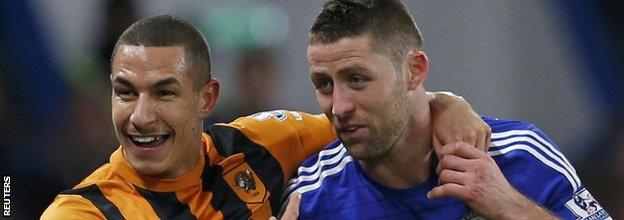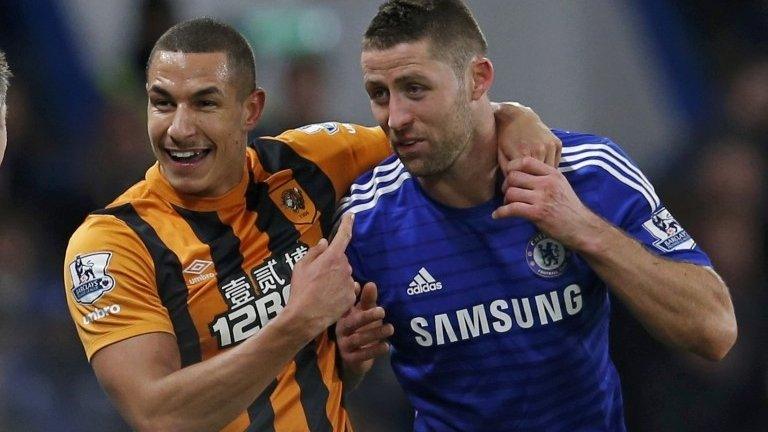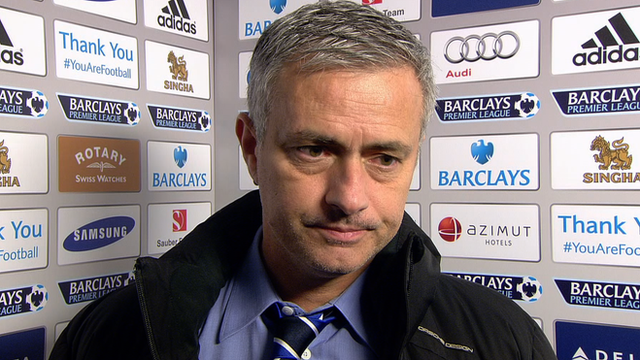Matt Bloomfield: Diving in football needs to be tackled
- Published
Diving: MOTD2 Extra pundits criticise 'blight' of simulation
I am sure I wasn't the only person disappointed by the number of dives I saw on the television from this weekend's games.
Maybe the time has come for retrospective action by the game's authorities, with the possibility of a ban if you are found guilty of simulation.
If there is one thing footballers hate, it is missing games, so if there is the possibility of that, then I am sure it would help to eradicate the problem.
Chelsea pair Willian and Diego Costa were booked for diving against Hull, while team-mate Gary Cahill and Sunderland's Adam Johnson were accused of going down too easily.
Referees will often not give a foul unless a player goes to ground, so maybe that's something that could be looked at to encourage players to stay on their feet.
However, I am loath to tarnish everyone with the same brush, as I have watched examples on the TV in the past when I have genuinely believed that players were simply trying to hurdle a foul.
Players at the top level move with such speed now, and the tempo of the game is so fast, that occasionally I believe that some are simply trying to avoid high impact challenges as a form of self-preservation.
A weekend of simulation |
|---|
Chelsea's Willian and Diego Costa are booked for diving in Saturday's 2-0 win over Hull City |
Gary Cahill, already on a booking, escapes a second yellow card in the same game after appearing to go down easily |
West Ham boss Sam Allardyce accuses Sunderland's Adam Johnson of diving to win a penalty in their 1-1 draw |
I have been booked once for diving at Northampton about five years ago.
I picked up the ball in a central midfield area just in their half and one of their players clipped my heel as I drove forward and I went over. I had no reason to dive as I was then at their back four and could pick a pass for one of our strikers.
As it was, we had what I thought was a a free-kick 30 yards from goal, but the referee blew his whistle, ran straight over to me and showed me a yellow card. I was mortified.
With no option to appeal against the card, and without slow motion video evidence, I had to take it on the chin and move on.

Hull's Jake Livermore was unimpressed with what he thought was a dive from Gary Cahill on Saturday
There is no doubt free-kicks are given for a lot less these days than they were when I first signed for Wycombe in 2003.
Players know the rules are interpreted slightly differently by referees these days and are a lot cleverer when shielding the ball and buying a foul.
There is a difference between diving and being clever with your body position, so that the opposition player has to come through you to get the ball and therefore fouls you in the process.
When I am playing and an opponent goes down easily or keeps winning cheap free-kicks, it really frustrates me and there have been times when words have been exchanged.
Referees have such a hard job to do, and as players continue to get fitter and quicker, the job for officials increases in difficulty.
They will give what they see, but the time might have come to give them a bit more help in this area.
- Published15 December 2014

- Published13 December 2014

- Published13 December 2014

- Published7 June 2019
